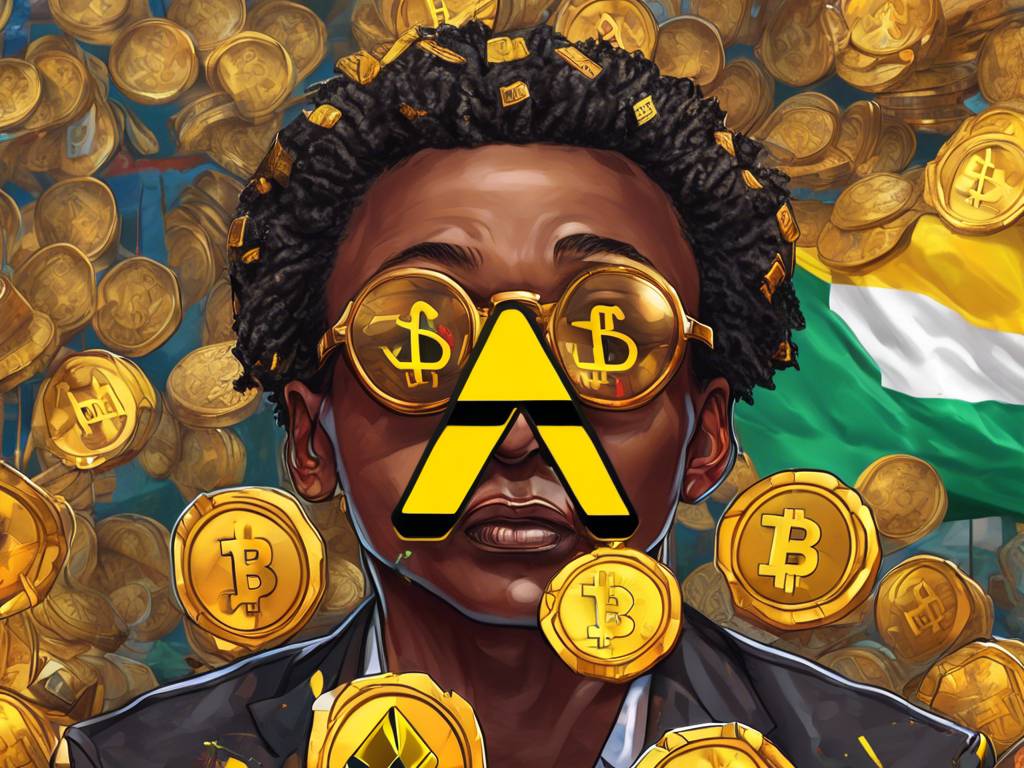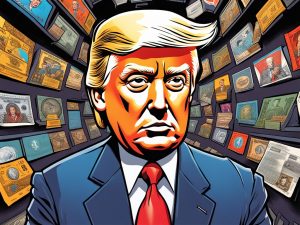Binance Removes Nigerian Naira from P2P Service Amid Devaluation Concerns
Cryptocurrency trading platform Binance has decided to remove the Nigerian currency, the naira, from its peer-to-peer (P2P) service. This move has caused discontent and concern among Binance users in Nigeria. It comes at a time when two Binance executives have been detained in Nigeria and their passports confiscated. These executives had traveled to Nigeria to address the country’s ban on crypto exchange websites.
Background: Binance’s Role in Nigeria
- Nigeria has the highest peer-to-peer volume globally, driven by extensive adoption within the country.
- The P2P feature gained popularity in Nigeria in 2021 after the government banned the country’s crypto industry during former President Muhammadu Buhari’s administration.
- The Nigerian government has expressed concerns about Binance’s role in Nigeria’s foreign exchange challenges, as cryptocurrency exchange platforms have become significant in determining informal values for the naira.
Binance Removes Naira from P2P Market
Binance has officially delisted the Nigerian naira from its P2P market. This decision follows claims by Nigerian authorities that Binance contributed to the devaluation of the naira. Presidential adviser Bayo Onanuga expressed concern that Binance’s operations could harm the Nigerian economy due to its purported role in fixing foreign exchange rates.
In response, Binance and other crypto exchanges have highlighted that exchange rates on peer-to-peer markets are determined by individuals participating in trades and are not controlled by the exchanges themselves. These rates fluctuate based on market conditions and typically exceed interbank rates.
Nigerian Central Bank Governor Alleges $26 Billion Transfer via Binance Nigeria
Olayemi Cardoso, the governor of Nigeria’s Central Bank, has recently alleged that Binance Nigeria facilitated the transfer of $26 billion from unidentified sources last year. The Central Bank of Nigeria (CBN) expressed concerns about suspicious fund flows through Binance Nigeria in 2023. The CBN reported that $26 billion had passed through Nigeria via Binance from unidentified sources and users.
The Nigerian government is determined to curb foreign exchange rate distortions and prevent market manipulation by collaborating across federal agencies.
Local Criticism and Regulatory Challenges
Despite regulatory challenges, Nigeria’s young and tech-savvy population continues to show strong interest in cryptocurrencies. However, local crypto analysts have criticized the government’s approach to cryptocurrency regulation, viewing it as unfriendly and counterproductive to resolving the country’s foreign exchange challenges. They argue that Nigeria should focus on promoting manufacturing and exporting instead of antagonizing cryptocurrencies.
It is worth noting that despite the government’s previous ban on banks engaging in crypto transactions, the CBN lifted the ban in December and issued guidelines for regulating virtual asset service providers.
Hot Take: The Future of Cryptocurrency in Nigeria
The removal of the naira from Binance’s P2P service and the ongoing regulatory challenges highlight the complex relationship between cryptocurrencies and governments. While some countries embrace cryptocurrencies as a means to drive economic growth, others view them as a threat to their national currencies and financial systems.
In Nigeria, where there is a high demand for cryptocurrencies and a significant reliance on peer-to-peer trading, the government faces the challenge of striking a balance between regulation and fostering innovation. As the country grapples with devaluation concerns, inflation rates, and foreign exchange challenges, finding a sustainable solution that benefits all stakeholders will be crucial.
Ultimately, the future of cryptocurrency in Nigeria will depend on the government’s willingness to engage with industry players, listen to the concerns of its citizens, and develop a regulatory framework that promotes innovation while addressing economic challenges. Only through open dialogue and collaboration can Nigeria unlock the full potential of cryptocurrencies and their underlying technology.





 By
By

 By
By
 By
By
 By
By
 By
By